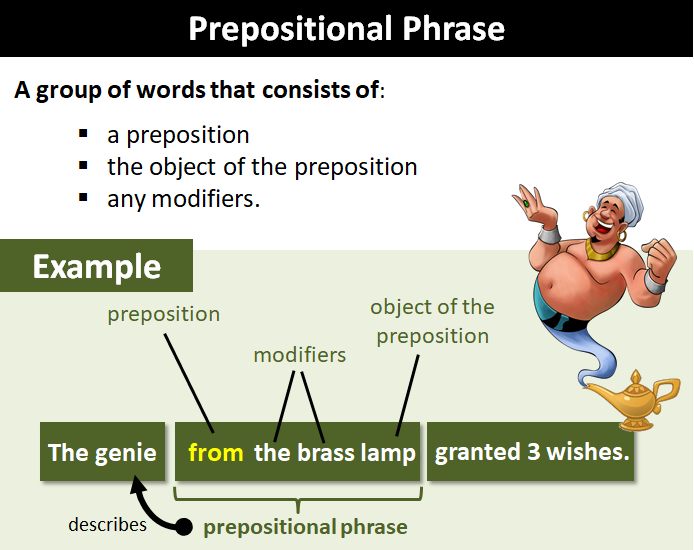Objective: To introduce prenominal prepositional noun phrases to pre-intermediate English learners and provide practical examples for their effective usage.
Introduction:
Welcome to our lesson on prepositional noun phrases, a powerful tool for enhancing your English sentences. Prepositional noun phrases, also known as noun adjuncts, are groups of words that start with a preposition and end with a noun or a pronoun. They are used to modify or give more information about a noun in a sentence.
Types of Prepositional Noun Phrases:
There are two main types of prepositional noun phrases:
- Attributive Prepositional Noun Phrases: These phrases come before the noun they modify.
Examples:
a. The book on the table is mine.
b. The man with a hat is my father.
- Appositive Prepositional Noun Phrases: These phrases provide more information about the noun they follow.
Examples:
a. My new home, in the countryside, is very peaceful.
b. The city of New York is a bustling metropolis.
Purposes of Prepositional Noun Phrases:
Prepositional noun phrases serve various purposes in English sentences:
- Adding Description: They can provide more information about the noun they modify, making your sentences more detailed and descriptive.
- Specifying Location: They can indicate the location of the noun, such as where it is or where it originates.
- Expressing Possession: They can show ownership or possession of the noun, similar to possessive pronouns.
- Amplifying Meaning: They can add more context or emphasis to the noun, making your sentences richer in meaning.
Examples of Sentences with Prepositional Noun Phrases:
- I met my friend from France at the park.
- The woman with the red dress is the singer.
- I placed the book on the shelf above the table.
- My favorite food is pizza from Italy.
- The restaurant in the center of town is always crowded.
Practice Activities:
To solidify your understanding of prepositional noun phrases, try these activities:
- Fill-in-the-blanks: Complete sentences with appropriate prepositional noun phrases.
- Translation: Translate sentences from your native language, incorporating prepositional noun phrases.
- Sentence Construction: Construct sentences of your own using prepositional noun phrases to describe different objects, places, or people.
Conclusion:
Prepositional noun phrases are versatile tools for enhancing your English sentences. By incorporating them into your writing and speaking, you can make your language more precise, descriptive, and meaningful. Remember, practice makes perfect, so keep using prepositional noun phrases in various contexts to master their usage.
